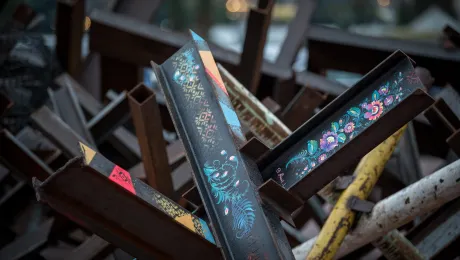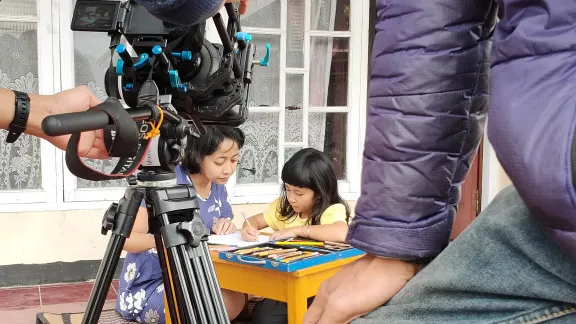
A scene from the short film âPlace among the starsâ produced by the LWF National Committee in Indonesia and local partner Jakatarub. Photo: KNLWF-Jakatarub/Yunita Tan
LWF National Committee in Indonesia among producers of four films selected for portrayal of inclusive citizenship
(LWI) - Four short films about interfaith dialogue and co-existence in Indonesia were the focus of a 9 June webinar, jointly organized by the Lutheran World Federation (LWF), the Norwegian Center for Holocaust and Minority Studies and the London-based Minority Rights Group International.
Established in 2001, the Norwegian Center is a research, education and documentation institute which runs an Inclusive Citizenship and Human Rights program. Supported by the Norwegian Agency for Development Cooperation (NORAD), it produces audio-visual resources to help prevent discrimination and conflict based on religious or ethnic identities. The Indonesian film launch was part of a larger project leading up to an international film festival on 7 December, the same week that the Nobel peace awards are announced in Oslo.
Also participating in the webinar was the United Nations Special Rapporteur on Minority Issues, Dr Fernand de Varennes, who highlighted the importance of sharing messages of hope and inclusiveness to overcome negative stereotyping that leads to hatred, fear and violence. The films, he said, are “beacons of light” that enable people embrace differences, instead of portraying them as “threatening or evil or wrong.”
These shortfilms are “beacons of light” that enable people embrace differences, instead of portraying them as “threatening or evil or wrong.”
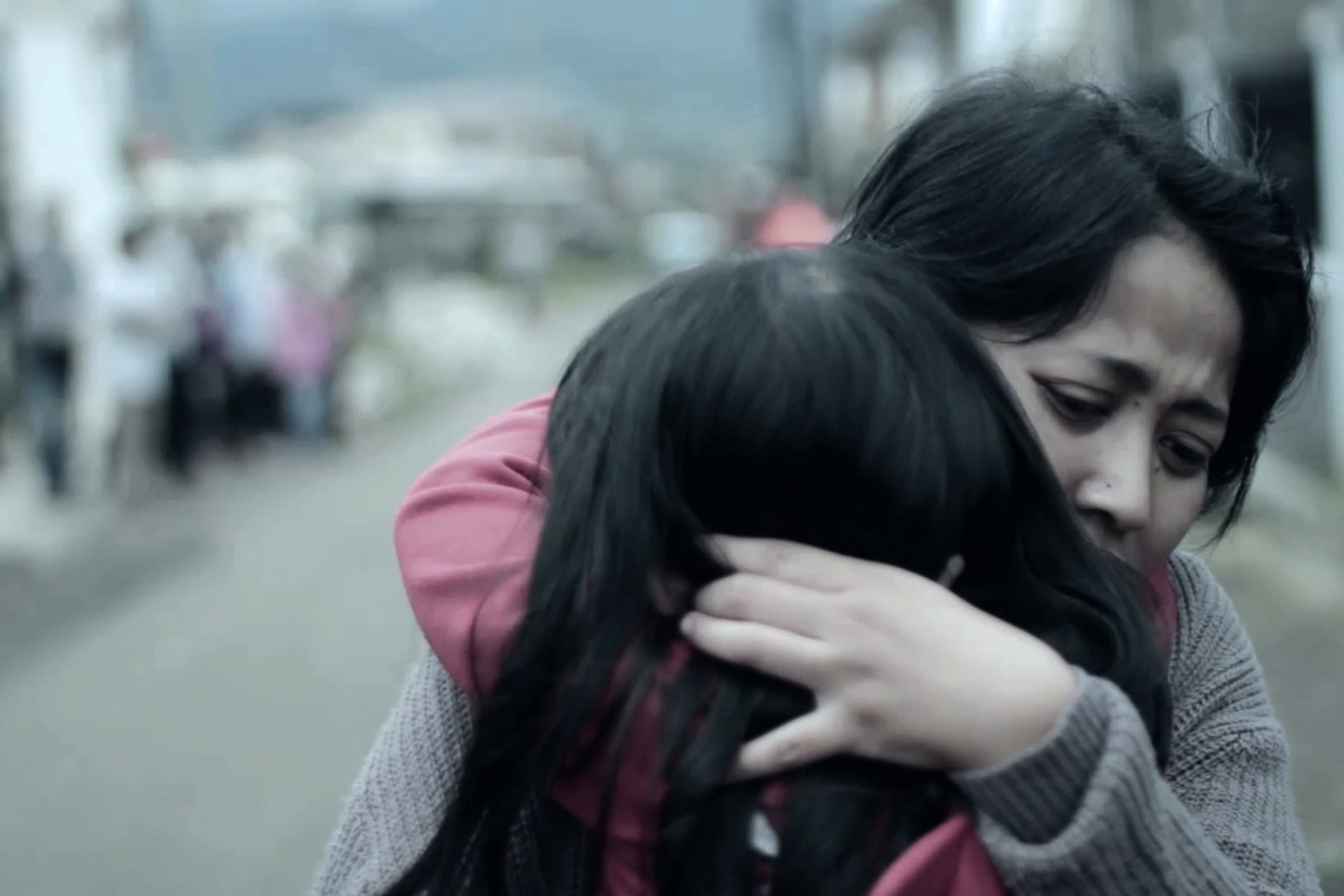
A mother and daughter flee from interfaith violence during a scene from the film ‘Place among the stars’. Photo: KNLWF-Jakatarub/Karisma Prima
The first film, entitled ‘Place among the stars’ was produced by the LWF National Committee in Indonesia and local partner Jakatarub, recounting a very personal story of a woman whose life is threatened by religious violence, yet who finds the courage to confront and forgive her aggressor. The themes of identity, vulnerability, reconciliation and shared humanity are powerfully portrayed as the perpetrator finds himself needing support from volunteers during the COVID-19 pandemic.
Director and interfaith activist, Risdo Simangunsong, noted the film was based on a true story without specifying places or religious identities of the protagonists. He explained that the personal format was selected for its ability to inspire and provoke an emotion response from the viewer, adding that some crew members were themselves moved by the testimonies of religious diversity they experienced during the production of this film.
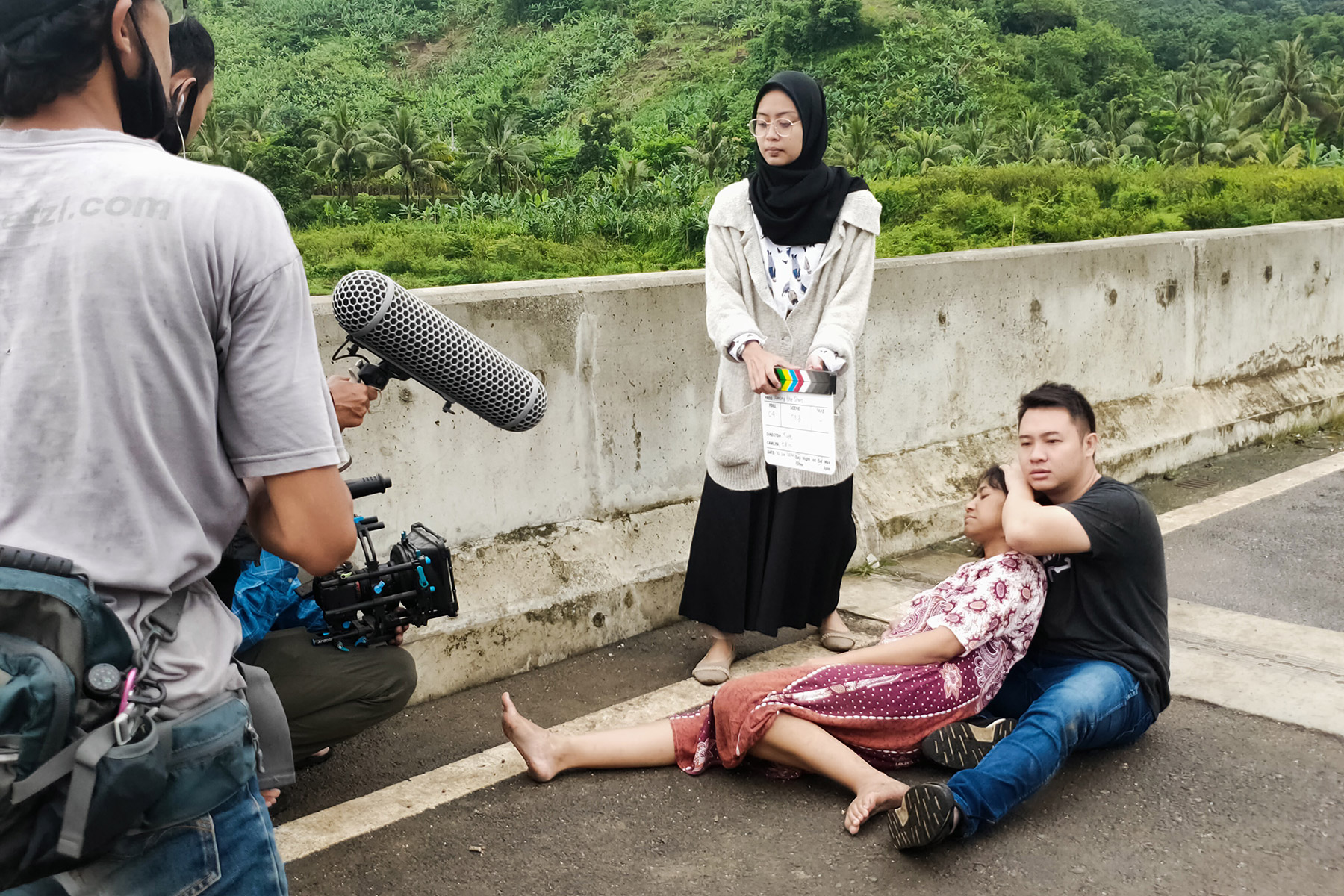
A woman’s life is saved during a scene from the film ‘Place among the stars’. Photo: KNLWF-Jakatarub/Yunita Tan
The second and third short films, entitled ‘Sandya’ (Unity) and ‘Tolerance in the family’ were produced for Basabali Wiki, a network of scholars, government representatives, artists and community activists. The former, filmed on the island of Bali, showcases young women and men from the six main religious groups in Indonesia (Islam, Protestant, Catholic, Hindu, Buddhist and Confucian) expressing a strong message of respect for the others’ identities.
Respect for diversity
The latter, filmed in a domestic setting, shows a mother and daughter following different religious traditions, yet helping each other to prepare for their rituals and times of prayer. Basabali Wiki director, Puta Eka Guna Yasa, said that the films had received positive feedback on social media after being selected from over 45 contributions by a jury and a people’s vote.
The final film, entitled ‘Yangere for Peace’ was filmed in the Maluku islands, where conflict between Muslims and Christians claimed thousands of lives and forced hundreds of thousands of other people to flee their homes in the early 2000s. The film highlights the traditional values of dialogue, respect and shared identity, showing how these values are passed down to younger generations through the rituals and instruments of ‘Yangere’ musicians.
Hendriane Namotemo, project manager for the Hein Namotemo Indonesia Foundation which produced the film, said the young people show ways of “redefining local wisdom” which enabled communities to live peacefully together for centuries. The production process “created new bonds between people,” she said and enriched her own understanding of peace-making as well.
Opening spaces for dialogue
Also watching and commenting on the films was a panel of experts moderated by Rev. Dr Sivin Kit, LWF’s Program Executive for Public Theology and Interreligious Relations. The panel included Fernando Sihotang, human rights and advocacy coordinator for the LWF National Committee in Indonesia, alongside Sanrawit Gougsa, Communications Officer at Minority Rights Group International and Dr Ingvill Thorsen Plesner, director of the Inclusive Citizenship Project.
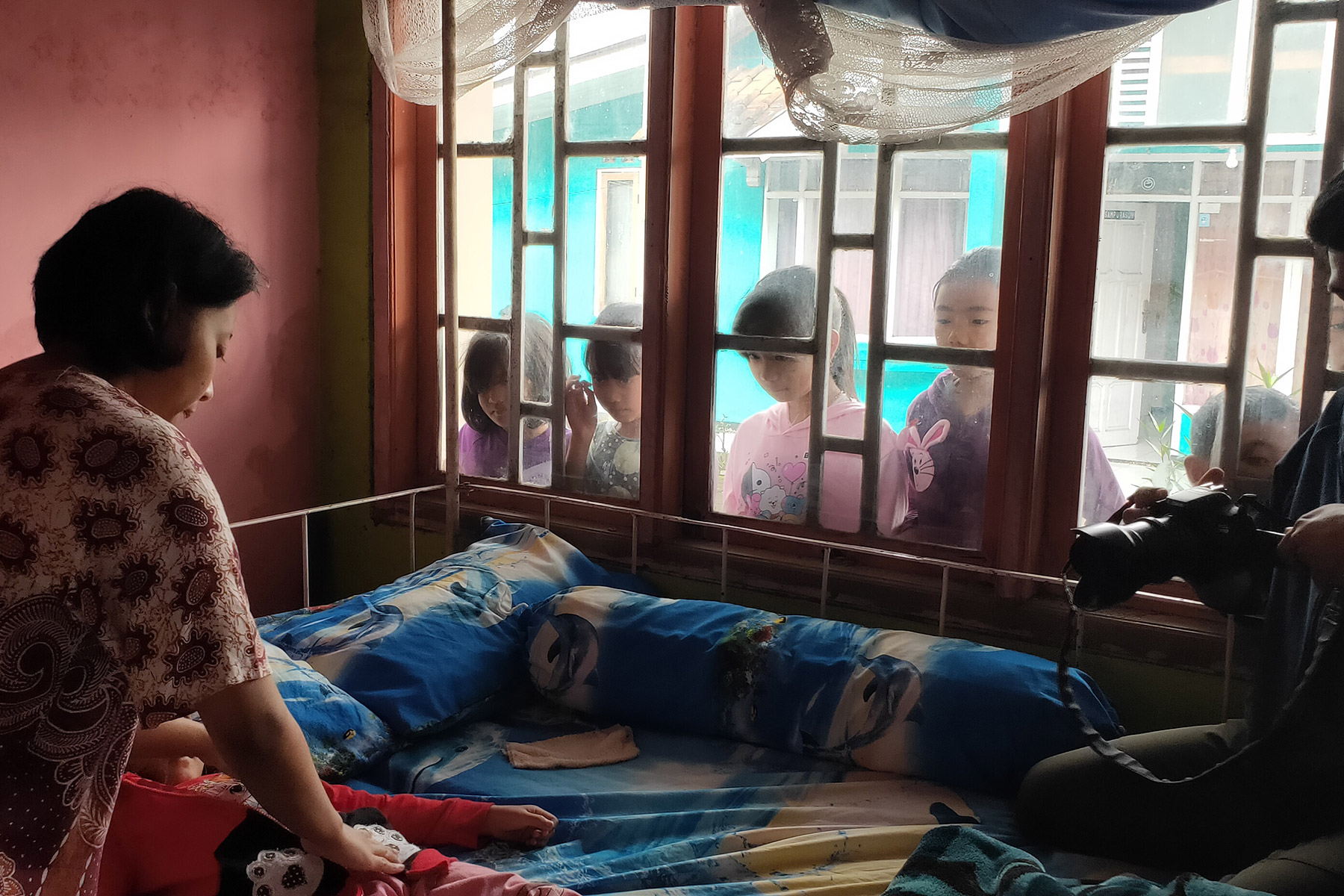
Children watch through the window during the filming of a scene from ‘Place among the stars’. Photo: KNLWF-Jakatarub/Yunita Tan
Sihotang highlighted the value of these films in showcasing “the voices of victims” of interfaith violence, confronting past conflicts and teaching alternative narratives of “inclusivity and communality.” Working peacefully together is the only way for young people in Indonesia to confront the huge challenges of climate change or the impact of the pandemic, he noted. In popular tourist destinations like Bali, he added, it is also a key to investment and economic development.
Gougsa emphasized the power of films to touch hearts and minds and she welcomed the way these four productions “plant a seed of a new vision” of inclusive citizenship. Plesner said she hoped that the films will be used in schools as well as by civil society organizations to “open spaces of discussion and dialogue” about interfaith education.
In closing remarks, Rev Kit, echoed the perspective of the UN Special Rapporteur, noting that “in a world where stories of hostility and hatred abound, we need hope and inspiration – not only to imagine a peaceful, more inclusive world, but also to work together towards achieving it.”
LWF/P. Hitchen
